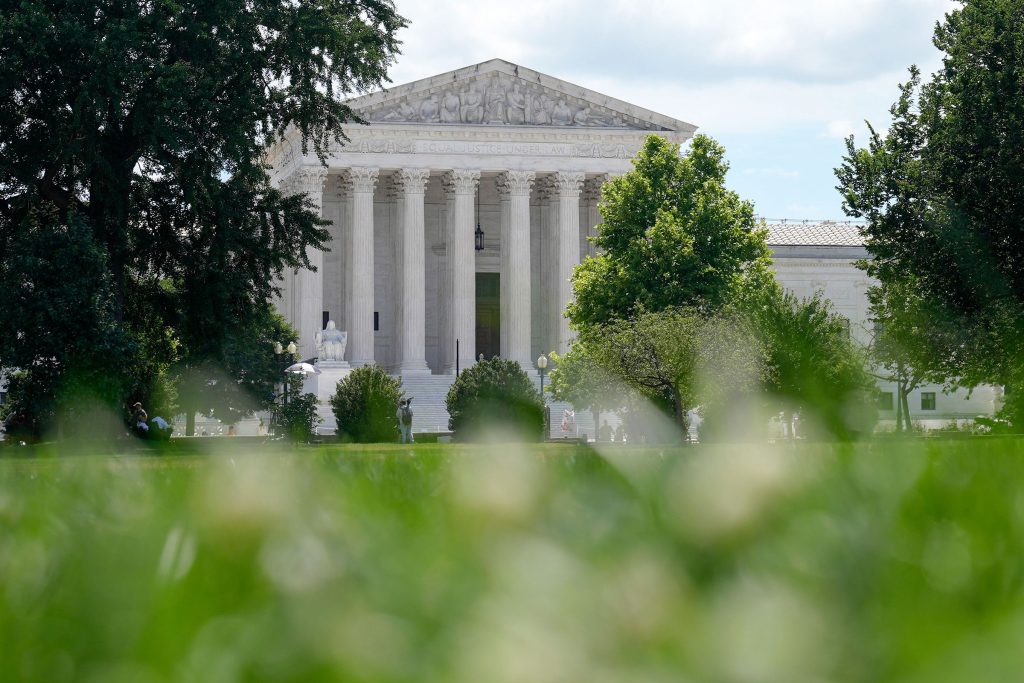
The U.S. Supreme Court upheld a Pennsylvania court decision on Friday that could provide critical relief for voters whose mail-in ballots are rejected due to technical errors. This ruling marks a setback for Republicans in a vital battleground state, allowing for provisional ballots to be counted under certain circumstances.
The absence of dissenting opinions from the justices highlighted a unified stance on the matter. The ruling could significantly benefit voters who may have made mistakes while preparing their mail-in ballots, offering them a backup option to ensure their votes are counted. Although it is uncertain how many voters will take advantage of this decision—given that not all counties notify voters about defective mail ballots—both parties involved in the appeal estimated that it could impact “thousands” of ballots statewide.
Justice Samuel Alito, supported by Justices Clarence Thomas and Neil Gorsuch, issued a brief statement acknowledging the case’s importance but noted that the Court could not grant the Republicans’ request. He emphasized that even if they agreed with the federal constitutional argument presented by the Republicans, they could not mitigate the outcomes feared by the applicants.
The case arose when Republicans sought an emergency appeal to block a lower court ruling that permitted the counting of provisional ballots for voters who failed to use secrecy sleeves for their mail-in ballots. The case was initially limited to two voters in a specific county, but the Republican National Committee (RNC) argued that the implications were far-reaching, seeking to either halt the lower court’s ruling or segregate the ballots statewide.
Ari Savitzky, a senior attorney at the ACLU’s Voting Rights Project, hailed the ruling as a victory for democracy, stating that it effectively countered attempts to undermine the voting process in Pennsylvania. He stressed that voters should have their voices heard without arbitrary barriers.
In the aftermath of the ruling, a spokesperson for the RNC expressed disappointment but highlighted other recent victories in Pennsylvania, including securing extended early voting and enhanced signature verification processes in various counties.
The Supreme Court’s decision followed closely on the heels of a ruling that allowed Virginia to remove about 1,600 voters from its registration rolls, an action criticized by voting rights advocates for potentially disenfranchising eligible citizens. The lack of explanation for that decision further fueled concerns among advocacy groups.
The original lawsuit centered on “naked ballots”—those sent without the required secrecy sleeve—but it also raised issues related to other types of defective mail-in ballots, such as those lacking signatures or dates. Pennsylvania’s varying county procedures for handling these ballots create a complicated landscape, making it challenging to determine the exact number of votes affected by the ruling. The RNC suggested tens of thousands could be impacted, while the ACLU estimated thousands of ballots might be at stake.
In the 2020 election, President Joe Biden won Pennsylvania by over 80,000 votes. Current polling suggests a tight race between Trump and Vice President Kamala Harris in the upcoming election.
The lawsuit began with two voters from Butler County who submitted mail-in ballots but did not use secrecy sleeves. Their ballots were flagged by a machine scanner, and they received automated notifications indicating their votes would not count. When they attempted to cast provisional ballots at their polling places, they were informed those votes could not be counted either, as state law prohibits counting a provisional ballot if a mail-in ballot has already been submitted.
The Pennsylvania Supreme Court ruled that while election officials were correct in rejecting the mail-in ballots, they erred by refusing to count the provisional ballots. The court maintained that provisional ballots must be counted when no other valid ballots exist for the elector.
Republicans argued before the Supreme Court that the state courts overstepped their authority, infringing on the state legislature’s power by allowing provisional ballots after mail-in ballots were discarded. They contended that state law should serve as a definitive end to the matter.
However, proponents of the ruling—including Democrats, voting rights advocates, and state election officials—contended that interpreting the law in such a restrictive manner would unfairly disenfranchise voters due to minor errors, particularly given the existence of a provisional ballot system designed to serve as a safeguard.
The case touches on broader legal questions about the role of the Supreme Court in state election matters and the balance of power between state legislatures and state courts regarding election rules. The RNC’s argument relied on a novel legal theory asserting that state legislatures have extensive control over election procedures without court oversight, a claim the Supreme Court has not definitively validated.






